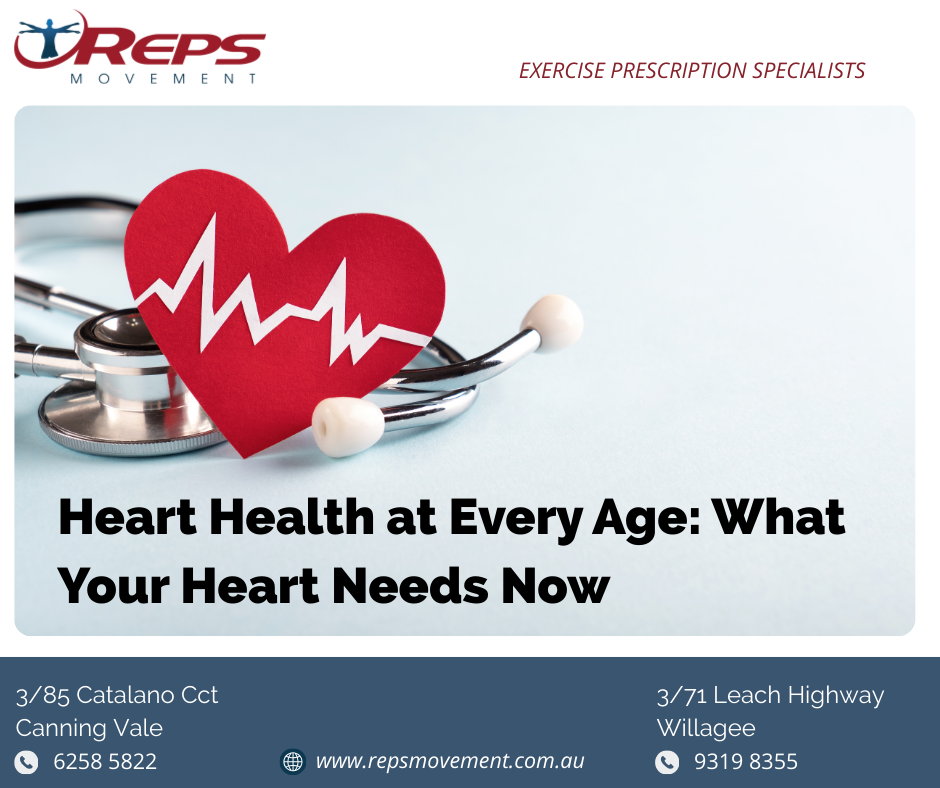How We Can Help Your Heart Thrive At REPS Movement, our exercise physiologists specialise in translating cardiac health science into practical, personalised approaches for people at every life stage. We believe that supporting your heart's health should enhance your life, not complicate it.
Our comprehensive cardiac health assessments provide valuable insights into your current cardiovascular function, identifying both strengths and opportunities for improvement. Based on these findings, we develop customised exercise programs that: - Account for your unique health history and risk factors
- Adapt to your current fitness level and capabilities
- Progress at a pace that's challenging yet sustainable
- Incorporate activities you genuinely enjoy
- Work within your lifestyle and time constraints
- Address specific cardiac concerns relevant to your age group
Whether you're a parent wanting to establish healthy patterns for your family, a busy professional balancing career demands with health needs, or someone managing age-related changes in cardiovascular function, our evidence-based approach provides the support and expertise you need.
Your heart works tirelessly for you—investing in its health at every age is one of the most valuable commitments you can make to your future wellbeing. Book an assessment with our exercise physiologists to assess your current cardiac health and fitness and plan to improve. | 